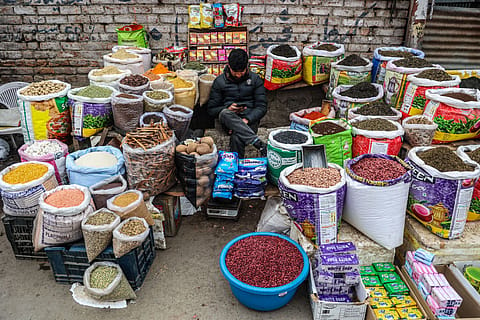Beyond raw produce: India is turning its food processing sector into a global powerhouse, says FICCI-Deloitte study
India’s food processing sector is undergoing rapid transformation—spurred by shifting consumer preferences, rural market expansion, clean-label innovation, and a rising global footprint, says a Deloitte-FICCI white paper.

India’s food processing industry is entering a phase of transformative growth, fueled by health-conscious consumers, rising affluence, expanding rural demand, and deepening digital engagement, according to a white paper titled "Spurring Growth: Driving Innovation and Unlocking Opportunities in the Indian Food Processing Sector" by Deloitte India and FICCI.
The sector contributes approximately 7.7% to India’s manufacturing gross value added (GVA) and supports around 7 million jobs directly and indirectly. The paper outlines how a convergence of demographic tailwinds, consumption shifts, and digital transformation is unlocking new opportunities for innovation and value creation in the Indian food ecosystem.
As India moves toward a $5 trillion economy by FY28, consumer food choices are evolving beyond traditional staples to include protein-rich, convenient, and health-oriented offerings. Packaged food consumption has risen sharply, with spending tripling from 9% to 23% of household food budgets between 2000 and 2023.
Premiumisation is accelerating, premium products make up just 27% of India’s FMCG market, but account for 42% of growth. Companies are launching new products with high protein, low sugar, clean-label ingredients, and functional benefits like gut health. Indigenous superfoods such as millets and makhana are also seeing a resurgence, buoyed by government campaigns and growing consumer interest in preventive nutrition.
Once led by urban consumption, the growth narrative is now increasingly rural. Rural FMCG volumes outpaced urban growth in FY24, driven by higher coverage, smaller SKUs, and tech-driven distribution strategies. The report highlights how increased rural prosperity is blurring the urban-rural consumption divide, creating significant opportunities for value-added processed foods.
Technologies like AI, blockchain, and IoT are being leveraged to build transparent, resilient, and efficient food supply chains. Innovations are driving real-time visibility, predictive sourcing, and sustainable operations. Over 90% of urban consumers consider clean labels important when buying food products, and more than 30% are willing to pay a premium for natural, additive-free options.
Quick commerce is another rising force—urban consumers are demanding impulse-driven convenience, propelling the GMV of India’s quick commerce market to $2.3 billion in 2023, with a projected CAGR of 27.9% through FY27.
Although India is one of the world’s top producers of cereals, milk, fruits, and vegetables, less than 10% of its agricultural output is processed. The report urges a move up the value chain—from exporting raw produce to building global-ready, branded processed food products.
With processed food exports currently valued at about $8 billion—compared to $48 billion in overall agri-exports—the scope for growth is immense. The report recommends focused export strategies around GI-tagged products, Indian superfoods, and healthy snacking to build India's food brand globally.
The sector benefits from several flagship government programs such as the Production Linked Incentive (PLI) scheme, Agri Infra Fund, and PM Kisan Sampada Yojana. Still, regulatory fragmentation and complexity—across food safety, labelling, packaging, and waste management—remain challenges. The report calls for a collaborative policy approach between industry and government to streamline regulations and support MSMEs and startups.
To fully realise the sector’s potential, the report outlines six focus areas, namely the fostering of product innovation aligned with health and taste trends, deepening rural market penetration with affordable premium offerings, scaling exports of culturally rooted, wellness-oriented products, promoting superfoods like millets and makhana, enabling MSMEs and startups through policy and infrastructure support, and leveraging technology across the value chain for efficiency and sustainability.
(INR CR)
India’s food processing industry, the report concludes, is no longer just a value-addition engine. It is evolving into a value-creation powerhouse—bridging farm to fork, aligning with consumer aspirations, and positioning India as a global leader in agri-food innovation.